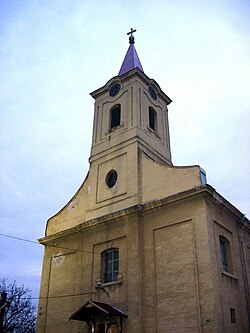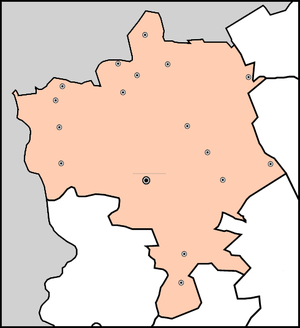|
Bački Breg
Bački Breg (Serbian Cyrillic: Бачки Брег, Hungarian: Béreg) is a village located in the Sombor municipality, in the West Bačka District of Serbia. It is situated in the autonomous province of Vojvodina. As of 2022, it has a population of 769 inhabitants. The village has a Croat (Šokac) ethnic majority. Bački Breg is in the very northwest of Serbia, on an important highway linking Serbia and Hungary together. The Hungarian town across the border is Hercegszántó. NameIn Serbian the village is known as Bački Breg or Бачки Брег, in Croatian as Bereg (since 2009)[2] or Bački Breg (before 2009), in Hungarian as Béreg, and in German as Bereg. HistoryIt was first mentioned in 1319. In 1620, the village was settled by Šokci who originating from Klis near Split. The first church in the village was founded in 1740. In the 18th century, Germans and Hungarians settled here as well. DemographicsAs of 2022 census results, the village has 769 inhabitants. Historical population
Ethnic groupsThe ethnic composition of the village (2002 census):
See alsoReferences
External linksWikimedia Commons has media related to Bački Breg. |
||||||||||||||||||||||||||||||||||||||||||||||||||||||||||||||





